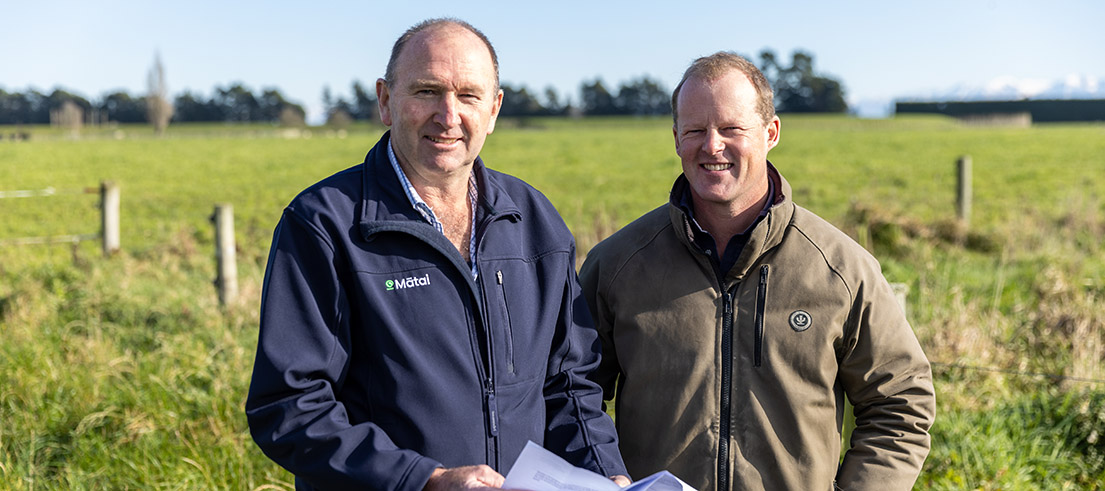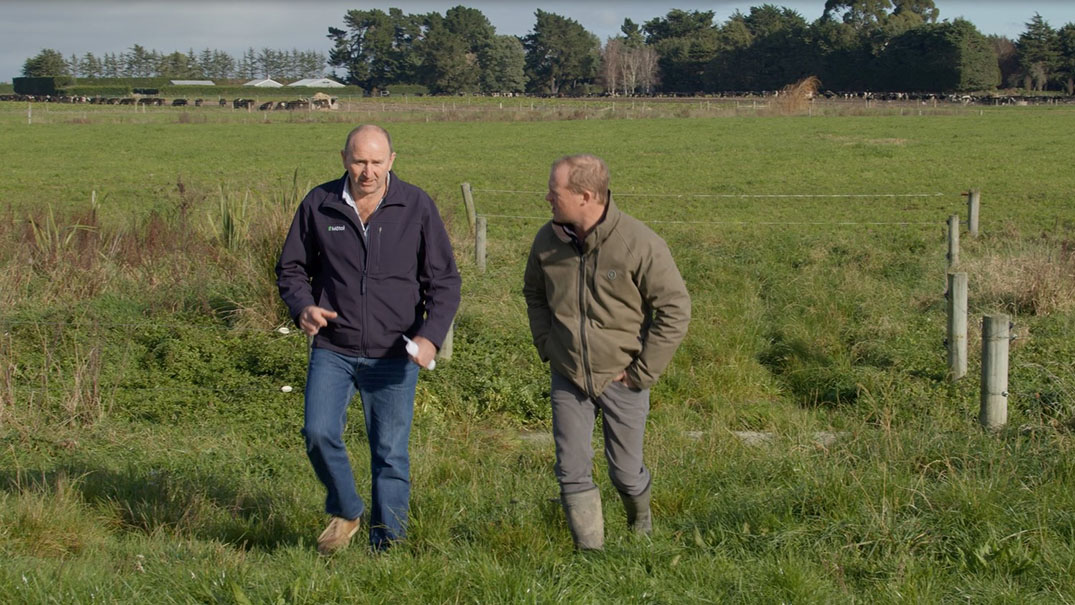
Integrated farm plan boosts business structure
Swannanoa farmer Andrew Gilchrist has delved deep into the business and people side of his family-operated farm through completing an Integrated Farm Plan (IFP). Andrew is one of 15 Waimakariri farmers to develop an IFP as part of Next Generation Farming, a two-year innovation project led by Waimakariri Landcare Trust (WLT).
The main aim of the Next Generation Farming project is to help farmers explore and adopt ways of farming that are as profitable as possible within environmental limits. The project is supported by the Ministry for Primary Industries through its Sustainable Food and Fibre Futures fund, Waimakariri Irrigation Limited (WIL), Environment Canterbury, Ballance Agri-Nutrients, and DairyNZ.
What is an Integrated Farm Plan?
IFP project lead Paul Reese described the plan as the "next step up from a Farm Environment Plan (FEP)." It examines five areas of a farm operation including business, people, farm systems, the environment and animals and crops.
"Like an FEP, the IFP looks at the environment, but it takes a much broader view of the entire farm business and delves deeper into a broader range of key topics.
"During our interview with the farmer we go through a set of questions and then identify where the gaps are so we can find the appropriate expert to work with the farmer on these areas.
"In Andrew’s case we identified business and people as focus areas."
A clearer picture
Andrew says while the process was a bit nerve-wracking to begin with, receiving the plan and being able to access expert assistance has helped him and his brother to make progress on the business and people side of their farm operation.
The pair have 430 hectares of family owned and leased land which they use for dairy support, mixed cropping, and lamb finishing. They employ 15 staff and also operate a successful crop spraying business.
"We have grown very quickly over the last seven years from our original crop spraying business to owning and leasing farms, so everything has moved really fast.
"Doing the IFP has cemented our thoughts on governance being a key focus area for us and it has given us the push to get on with it and to establish a clearer structure around roles and responsibilities.
"We were able to look at who is responsible for each area of the farm business and make sure that we are clear on what that looks like."
Paul says while every farm has different areas to work on after completing the plan, there are several common themes that have emerged.
"We have noticed that there are some gaps in the business and people areas. I think because farmers are practical people and are more focused on working in the business, it can be harder to find the time to work on the business.
"The IFP allows you to take a step back from your daily tasks and take a helicopter view to see if there are any gaps that need to be filled in. You get a clear picture of where the opportunities are to grow your farming operation."
IFP template used widely
All the farmers who participated in the project have provided positive feedback on the IFP process and Paul says the IFP template is now being used by a wider group of farmers.
"It’s been really well received, and I think it will continue to be used more widely to provide a deeper overview of how a farm business is operating and then giving farmers the support and help they need to make improvements."
Andrew recommends that farmers give the IFP a go and says that while there are some searching conversations to be had, the overall outcome is extremely positive.
"Just take the ball and run with it. There will be nothing but good that comes out of it, even if you do have to have a few courageous conversations along the way."
The IFP process has provided participating farmers like Andrew with the opportunity to improve the profitability, resilience, and sustainability of their operations; better equipping them to meet the challenges of tougher environmental limits.

